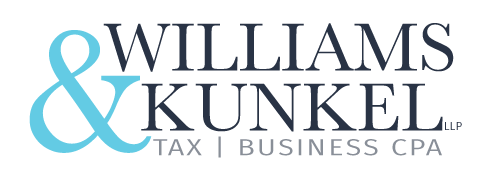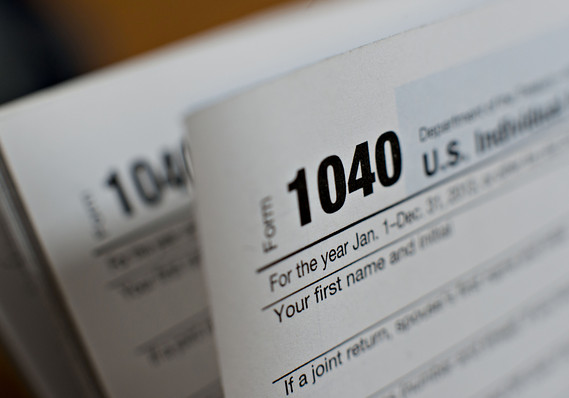Any new year means more than new diets, gym memberships and other fresh beginnings. It also signals another tax-filing season is knocking.
The Internal Revenue Service will begin accepting 2017 tax returns on Jan. 29. The filing deadline this year is April 17 (rather than the typical April 15 due date). And don’t worry about all those tax law changes you’ve been hearing about. They apply to tax years 2018 and beyond. Your 2017 return is subject to pre-2018 rules.
If you are among the do-it-yourselfers, rock on. Keep in mind that simple federal tax returns can be filled out and filed for free online.
And if your 2017 adjusted gross income is $66,000 or less, you might qualify for the IRS’s Free File program. Roughly 70 percent of the nation’s taxpayers — about 100 million people — are eligible, according to the IRS.
Meanwhile, if you are among those who plan to hire someone to prepare your taxes, the IRS has some tips.
It’s important to carefully choose who prepares your tax returns. Regardless of who does it for you, you are ultimately responsible for the contents of your return. While a fraudulent tax preparer would be on the hook for illegal actions, you could owe back taxes, penalties and interest for filing an inaccurate tax return.
Here are some tips to help you pick your preparer.
DFW Business Advisor: Who Should Prepare Your Taxes This Year?
1. Do some creeping
If you pay someone to prepare your return, the person is required by law to have an IRS Preparer Tax Identification Number (PTIN). However, they all have differing levels of education, training and professional credentials.
You can search for a preparer’s credentials and select qualifications at the IRS directory. If the person is an enrolled agent, which is an IRS-issued professional designation, you can verify their status at the IRS website. You also can take a look at a searchable IRS list of prepares who have faced censures, suspensions and the like.
Some credentialed tax preparers’ disciplinary history and license status can be checked at the state level. For certified public accountants, check with your state’s public accountancy board. If you are considering hiring a tax attorney, consult your local bar association for more information about the person.
You also can check the Better Business Bureau to see if there are complaints against the person or firm you are considering.
Be aware that although a noncredentialed preparer can have a PTIN, the person might be authorized only to prepare and file your return, not to represent you before the IRS if issues arise.
2. Avoid fly-by-night folks
If you have questions about your return after tax season ends or you end up getting audited, you probably want to know your tax preparer will be around to help.
It’s important to consider whether the individual or firm is available to answer questions about the preparation of your tax return months — even years — after the return has been filed, an IRS spokesman said.
3. Have the money talk
Ask about fees. The IRS recommends avoiding anyone who bases their fees on a percentage of your refund or who boasts they can get you a bigger refund than their competition.
Important: Have this conversation before you hand over any identifying information, including your tax documents or Social Security number.
The average fee charged for preparing an itemized Form 1040 with Schedule A (itemized deduction form) and a state return stood at $273 in a survey done last year by the National Society of Accountants. The average cost for a Form 1040 without Schedule A and a state return was $176.
Also ask about extra fees. For instance, the survey showed that 71 percent charge extra for disorganized or incomplete files and 33 percent charge an additional fee if you need to file for an extension.
4. Ask about e-filing
The IRS says you should make sure the preparer offers electronic filing of returns.
Generally speaking, any preparer who expects to file more than 10 client returns in a year must use IRS e-file. The agency says choosing both e-file and direct deposit for refunds is the fastest and safest way for taxpayers to both file and get any refund due.
For 2017 returns, the IRS expects to issue more than 90 percent of refunds within 21 days of filing. Note: Refunds due on returns claiming the Earned Income Tax Credit or the Additional Child Tax Credit cannot be issued until mid-February, the IRS said.
Additionally, before you sign your return, review it. While not every number or calculation might make sense to you, you should at least know, for example, the number of dependents you have and information regarding your 2017 deductions.
Nevertheless, don’t be shy about asking questions if something is unclear. You should feel comfortable with the accuracy of your return before you sign it. Remember, you, not the preparer, are responsible for its contents.
If you are due a refund, make sure the money will go directly to you. Review your routing and bank account number on the completed return. Also make sure the preparer signs the return and includes their PTIN.
After you sign the return, be sure to get a copy of the completed return. The IRS recommends that taxpayers should retain copies of their prior-year tax returns for at least three years.
Call Williams & Kunkel CPA today in Flower Mound at 972-446-1040 to have a chat about your small business tax health.
In addition, you can connect with us to receive updates throughout the business week by following us on Twitter or LinkedIn or liking us on Facebook.
Source: CNBC

